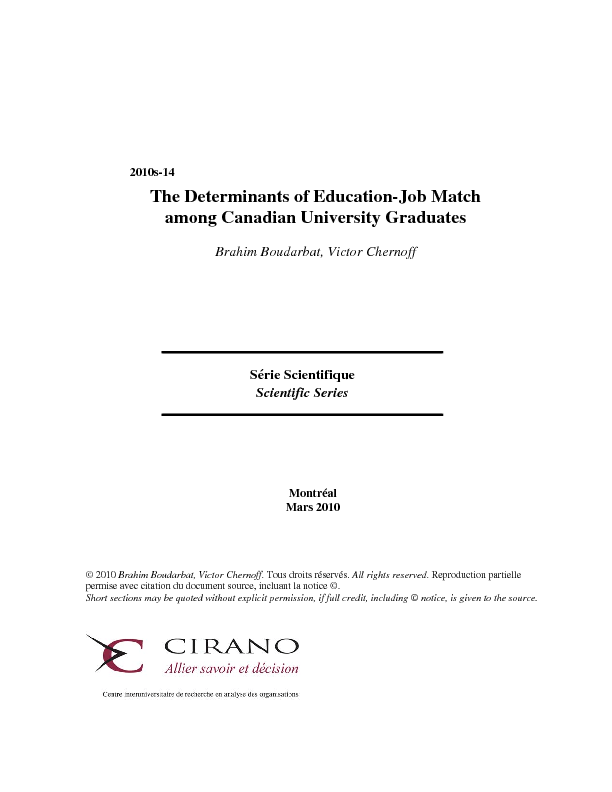The Determinants of Education-Job Match among Canadian University Graduates
This study uses data from the Follow-up of Graduates Survey Class of 2000, to look at the determinants of education-job match among Canadian university graduates. From a public policy perspective, the question of education-job match is relevant given the substantial investment society puts into its postsecondary institutions, and the role devoted to human capital in economic development. Our results indicate that one graduate out of three (35.1%) is in a job that is not closely related to his or her education. The most important result is that demographic and socioeconomic characteristics (gender and family background) do not significantly affect the match. On the other hand, education characteristics strongly influence match, with field specific programs (such as Health sciences and Education) having the highest likelihood of obtaining an education-job match. In addition, the level of education (i.e. graduates with a postgraduate degree vs. a bachelor degree), as well as good grades, strongly affect the match. Employment characteristics also affect the match, but to a mixed extent, with certain characteristics, such as industry, as well as working full-time (vs. part time) affecting the match to a strong extent, while others, such as the permanence of employment, as well as the method used to obtain employment, not having a significant effect on match.
[ - ]




